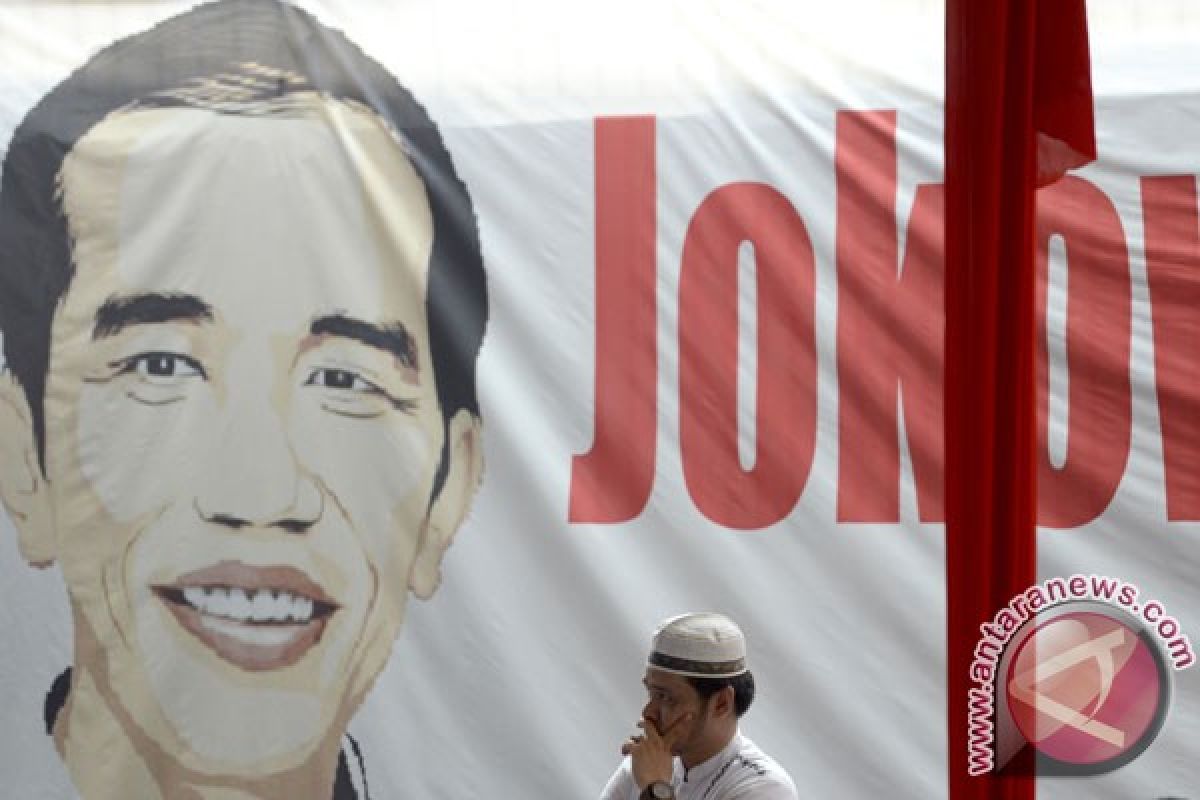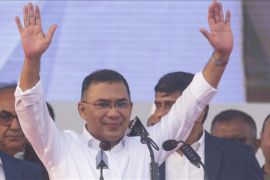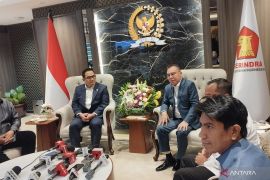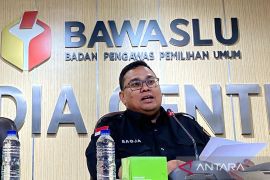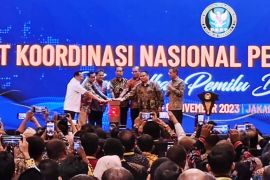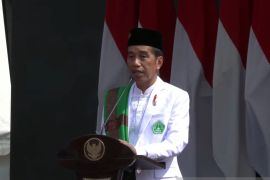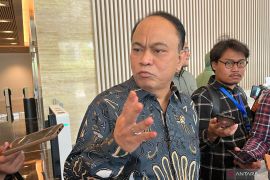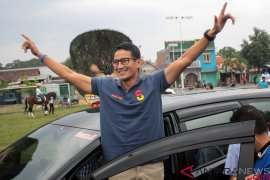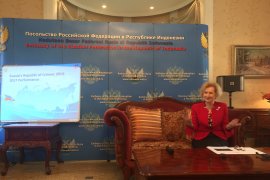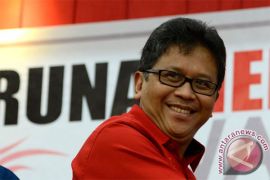Based on the survey of the Alvara Research Center from May 18 to May 28, 2014, in ten major cities of Jakarta, Bandung, Surabaya, Semarang, Medan, Palembang, Pekanbaru, Balikpapan, Banjarmasin, and Makassar, the urban Muslim community favors the Jokowi-JK pair for the next presidential term.
"In that survey, some 38.8 percent of the votes were for the Jokowi-JK pair and 29 percent were for the Prabowo-Hatta duo, with the remaining 32.2 percent undecided," Alvara Research Center director Hasannudin said here on Thursday.
According to him, respondents selected at random included 1,440 eligible Muslim voters between 20 and 54 years.
"Urban Muslims of the coalition led by the Indonesian Democratic Party of Struggle (PDIP) are more solidly in favor of the Jokowi-JK pair compared with the urban Muslims of the Gerindra-led coalition," Hasanuddin noted.
If elected as president and vice president, Jokowi and Kalla are believed to be capable of making several changes in different areas across the country.
Therefore, at least nine provincial chiefs, made up of six governors and three deputy governors, have confirmed their support for the Jokowi-JK pair in the upcoming July 9 presidential election.
According to the Jokowi-JK National Campaign Team, Central Java Governor Ganjar Pranowo, East Nusa Tenggara Governor Frans Lebu Raya, Lampung Governor Sachroedin Z.P., Central Kalimantan Governor Agustin Teras Narang, West Kalimantan Governor Cornelis, Bangka-Belitung Governor Rustam Effendi, Banten Deputy Governor Rano Karno, Riau Islands Deputy Governor Suryo Respationo, and Surabaya Mayor Tri Rismaharini have confirmed they will act as national campaigners for the victory of the Jokowi-JK duo.
Home Affairs Minister Gamawan Fauzi has said the governors and deputy governors were permitted to become the national campaigners for presidential and vice presidential candidates they wanted to support.
Fauzi noted that three other provincial chiefs have also submitted their application for a leave of absence to take part in the national campaign for the victory of the Jokowi-JK pair.
The three provincial chief are North Sulawesi Governor Sinyo Harry Sarundajang, Central Kalimantan Deputy Governor Achmad Diran, and Bali Deputy Governor I Ketut Sudikarta.
Jokowi and Jusuf Kalla were nominated as presidential and vice presidential candidates by the Indonesian Democratic Party of Struggle (PDIP), the National Democrat Party (Nasdem), the National Awakening Party (PKB), the Peoples Conscience Party (Hanura), and the Indonesian Justice and Unity Party (PKPI).
The spokesman of the Jokowi-JK success team, Ferry Mursyidan Baldan, had previously said the pair wanted to ensure the progress of traditional markets.
"Wherever Jokowi goes, he always uses a few minutes of his time to visit traditional markets to shop and to talk with the traders and the shoppers," Ferry said on Monday.
According to him, Jokowi knows and realizes that the traditional markets, although muddy and dirty with an unpleasant smell, were the centers of interaction of low-income people.
"Therefore, he always visits the traditional markets wherever he goes, because he wants to save and improve them," the National Democrat Party (Nasdem) politician said.
Meanwhile, Faisal Barsi, an economist at the University of Indonesia, admired Jokowis presentation of his economic program.
Basri stated that he appreciated Jokowis economic presentation because it reflects justice and aims to eliminate the gap between the rich and the poor.
He also admired Jokowis presentation on the inequality between the rich and the poor.
During the presentation, Jokowi explained that although the national economic growth was at 6 percent, the inequality rate between the rich and the poor continued to increase during the last five years to 0.35 percent in 2008, and is expected to rise to 0.41 percent in 2015.
"Jokowi started his presentation by focusing on inequality and efficiency and human resources development, which are considered important for the quality of manpower," Basri noted.
He pointed out that Jokowi included human resources development, food security and energy security in his economic program.
With regard to food security, Jokowi promised, among other things, to build 25 dams to improve irrigation and provide farmers with seeds and pesticides as well as easy access to markets.
Jokowi and Kalla are expected to ensure food security for the entire population of the country.
Known to be the largest archipelagic country in the world with more than 17,000 islands, Indonesia is the fourth-largest rice producing country in the world with its staple food production in balance with its own consumption.
Rice constitutes more than half of the food crops production and consumption, and it plays a major role in the livelihoods of Indonesians.
Therefore, Jokowi and Kalla, if elected as president and vice president, are expected to be consistent in promoting rice production, together with improving farmers welfare.
When opening a national seminar on food sovereignty, organized by the Gajah Mada University Alumni Association (Kagama) in Jakarta on Sunday, Yogyakarta Governor Sri Sultan Hamengkubono X said the next government will have to undertake an overall reform of the national food policy.
"The food policy reform should start from food security and move towards self-reliance on food, with local content as the basis to achieve real food sovereignty," the Kagama general chairman noted.
With reference to the energy sector, Jokowis running mate Jusuf Kalla emphasized that the pair planned to build power plants with a capacity of 20 thousand megawatts to overcome the electricity crisis in many regions of the country.
"In three years, we plan to build power plants with a capacity of 20 thousand megawatts," Kalla remarked.
(O001/INE)
EDITED BY INE
(O001/KR-BSR/S012)
Reporter: Otniel Tamindael
Editor: Jafar M Sidik
Copyright © ANTARA 2014
